March 5th 1914
Tenindewa Notes (From our own Correspondent)
All the farmers around here are finishing harvest and trucking wheat and most are satisfied. Some came out well whilst others have some arrears to wipe off, but it cannot be expected that one fair year will clean up two bad years. Most are again plowing so as to make the coming year a winning one. Mr. Norman Fry is commencing to build a nice new residence , and I understand Mr. Bert Crothers, of Geraldton, has the contract. This building shows that farmers will do well here if given a chance and have anything like success.
Wollya dam, the source of domestic supply for Tenindewa, is in disgraceful condition.
The catchment is only a manure heap, and the Roads Board of Mullewa had their attentions drawn to it long since, but nothing has been done to fence the catchment in. I noticed the other day refuse floating about the dam whilst the pump was out of order. It takes hors for settlers to get a load of water. I hope our representative will attend to this urgent matter.
Wollya Well also needs attention as the buckets leak badly. Surely some members of the Roads Board could keep an eye on these things, or the supervisor could give them occasional attention.
In my opinion Roads Boards are a failure, and the money could be spent by a Government official. Then it would be spent where wanted and things kept in repair.
What has become of the Mullewa Health Board and their inspector to allow a water catchment to go unfenced, with the result that the water gets polluted to the risk of the health of the settlers. Perhaps the Central Health Board will take a hand in the matter.
The dams are all drying up and water carting is the order of the day. It is dead horse work and stops many an acre of wheat from being put in.
I notice a fair quantity of new farm machinery still arriving, and the settlers must have confidence in the place.
..
……………………………………………………………………………………………………………………………………………………………………………………………
The south side of the railway
played the north side in a cricket match last Sunday and the north proved too strong for the south. The south want a return match, and Farmer Keeffe expects to do great things then with his under-below bowls. It was a really enjoyable match.
April 25th 1914
Tenindewa Notes (From our own Correspondent)
The farmers around here are as busy as the little bee, and hence ploughing is well advanced, and some have commenced to seed already, too partly I think from last season’s experience. The early crops caught the disease and the later ones escaped. Altogether 30.000 bags [2,500 tonne] of grain went from this siding this year and taking everything into consideration the railway treated us well. With a few good seasons this place is sure to become very popular for wheat production. Mr. Fry’s new residence is nearing completion and the contractor Mr. Bert Crothers, is making a very nice job of it. It is pleasant to see these nice homesteads going up, and it and it is a good sign and plainly proves that the farmer will win through all right, notwithstanding bad seasons.
The Roads Board apparently would rather see farmers carry water up the side of Wollya Dam and lift it into tanks rather than mend the pump or put a new one on the dam. The worthy chairman told the members it was not worthwhile repairing he pump or getting a new one (a matter of 45 shillings [$4.50]) as there was not enough water in the dam. Since that time, they have carried out of the dam, up its sides and over the wire fence 30,000 gallons [115,000 liters]. There is a gate at the dam, but the Roads Board locked this up to keep the refuse out of the dam. The catchment is all exposed to stock, and as this is the settlers drinking supply, the Board of Health should take a hand, as the Roads Board will do nothing. I maintain that the supervisor should present a report on all complains and work.
There are two wells on the Wollya Reserve for the use of the settlers, but they are both out of order. There are no buckets or ropes on one, and both buckets on the other are in leaky condition. Surely some members of the Roads Board will take these matters up and have them thrashed out. A number of settlers have sent a joint complaint to the Minister for Works. It is a common sight to see four teams waiting for water and delayed by defective, or no, means of getting water.
Farmers do not view with pleasure the altered Game Act, another means of taxing the farmer, as if the fertilizer penalty is not enough. It is a motto of pay, pay, pay, and tax, road board rates, dog and wheel tax, health rate tax, customs and if you have any left, income tax.
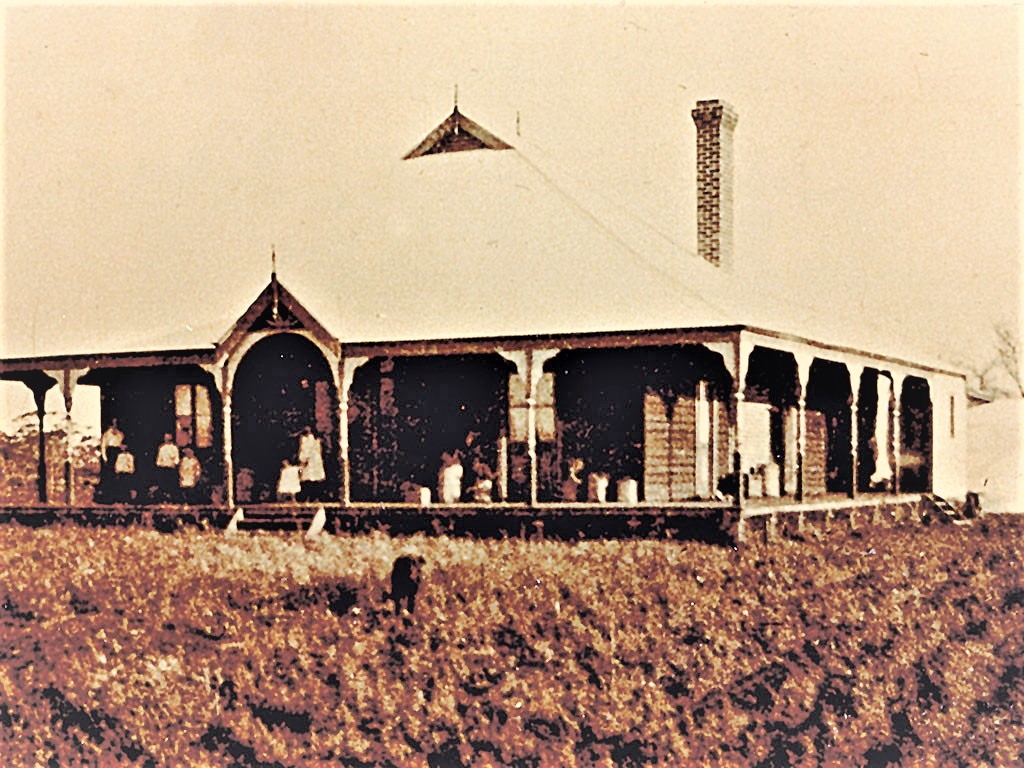
Mrs. Fry and her children are pictured (plus a dog)
May 28th 1914
Tenindewa Notes (From our own Correspondent)
Things are very lively with the cocky round here; he is trying to be in a lot of places at the one time. Talk about a busy man; well, he is one. He wants to finish plowing, seeding, vote for members of the Legislative Council, vote for the Roads Board members and between the lot he has to hustle. In the council elections things seemed evenly divided between the farmer and the Labour man. Now-a-days people won’t vote what is best for the country, but you can hear them say which side can we get the most from. Speaking of elections this Government does the business cheaply. Fancy giving a man one pound ($2.00) to stay in crib from 8 am to 7 pm as a presiding officer. Now the Federal Government do things in style, and they give for the same service 2 pounds ($4.00) to the presiding officer, and 15 shillings ($1.50) to the poll clerk. Why the difference between Federal and State?
The Road Board nominations are due on Saturday next, and the polling takes place on the following Saturday. An election of Roads Boards members is one of the funniest things out. Ballot papers are issued before the nominations are declared, hence the man who gets about early has a lot of votes in before nominations even close. The Murchison Road Board are very liberal this time, and are allowing settlers to vote, who have never had to pay any rates so far, and who are not liable for one, two or three years yet, as the case may be. If this is in accord with the Act, then it is different to the way the Geraldton Board acts. They will not let ratepayers vote who have not paid up their current rates. Another thing, fancy holding an election in the West Ward of Mullewa District and having no polling place. How’s that for strong? We certainly have two postal officers in out of the way localities. The whole election for members of the Mullewa District Roads Board next Saturday, in my opinion, will be informal and could be upset.
We had a shower of rain the other night, the first since last winter. The ground was wet about an inch under the surface. It came on during the night, and you don’t know Mr. Editor what pleasant music it is to hear rain falling. It was not quite enough to start the early sown wheat. Many farmers are sowing their early sown wheat late this season, they have found it a mistake to sow too early.
Mr. N. Fry’s new residence of seven rooms is now completed and tenanted. It is a very pretty building, so some must be getting on the right side of the ledger.
My word Mullewa is a stony place, and Arbor Day there is no joke. I saw a labourer with sweat on his brow, digging a hole about a cubic yard. I asked him who was to be buried and he said: “Me I think if I stick at this game.” He added I have tried all tools, most explosives, and now must try some more powder. Fancy taking a day over a cubic yard hole to plant a tree in, to shade the future generations or perhaps the hungry goats in dry weather.
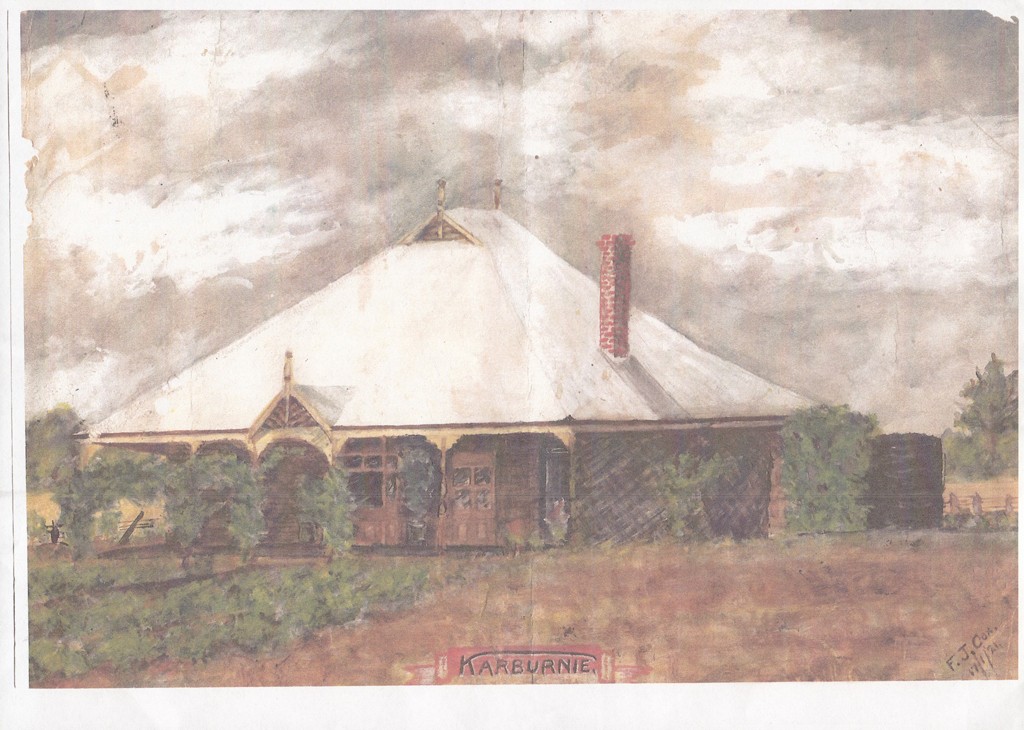
July 18th 1914
Tenindewa Notes (From our own Correspondent)
This district has been experiencing a very dry time, just enough rain to bring crops up nicely but not enough to send them along, and we have had the heaviest frost for years. Morning after morning it has been as white as a sheet all over and bitterly cold. But things have changed. Yesterday nice rains set in, and we must have had about an inch [25mm], and the crops are growing already, and water carting is now finished for this season. (Fancy carting water in July) There are some nice pools in the creek and some dams have a fair quantity in them. You should see the cockies faces today–all smiles. It would be a good time to borrow a fiver from them. Their faces looked very glum a bit back; you would think they had lost a bob [10 cents] and found sixpence [5 cents]. If the weather remains seasonable from this [time] on there should be some nice crops to reap. There is a very large area in–about 6000 acres [2400 hectares] of wheat and barley.
The Roads Board election has finished, and our farmer Mr. W. H. Stokes was elected to represent the West Ward, which he appears to be doing very well. Mr. Fry who was the other candidate, was defeated by a small majority. The other Wards are the same as formally.
The farmers are starting to fallow now, as the ground is well wet; wet for a good distance in. There will be more fallow this year that any previous one and with a fair season or two more [farmers] will be on their legs, and will only crop-fallow, which no doubt is the only road to success. To give one instance of fallow for [the] past season, Mr. Maloney, of Tenindewa, fallowed 120 acres [48 hectares] and took off 1200 bags of wheat [100 tonne or 2 tonne per hectare], and from examination of the fields when taken off there must have been a couple of bushels per acre, lost. This ground was ploughed with a disc plough, then spring- toothed cultivated before drilling in the seed and some (where the best crop, 33 bushels, was taken off) was that sandy that 5 big horses were stuck up with 20 bags of wheat on.
- [That rain event reported in July of 1914 (as above) turned out to be the biggest fall of the growing season and precious little fell thereafter making it one of the driest winters ever in Tenindewa. 1914 was an Australia wide drought]
September 29th 1914
Tenindewa Notes (From our own Correspondent)
Things around this district are as bad as they can be and few, if any farmers will have any crop to take off. Some may take a little hay, but the majority will have to buy grain to put in the 1915 crop. There will not be one bag of wheat produced east of Northern Gully hence farmers will require seed wheat and manure from now on till the 1915 crops are ready.
Around Tenindewa there are as good a lot of farmers as in any district know to me. No town man knows the way they have battled through the last 4 years. It has been hard toil, early and late gathering crops in, and then on Sunday having to cart water and do odd jobs, and now with this season an absolute failure, it naturally has a great depressing effect, and many of the farmers would prefer fighting the Germans to farming. Still with fair assistance from the Government they will make a good account of themselves for the 1915 crop, and no doubt will make good with those business people who have trusted them.
Some of the farmers are making a little money renting their paddocks to the sheep and cattle owners, and others are getting a few sheep on their own account.
Election matters are very quiet, rarely talked about war. The war has caste its shadow over such small matters.
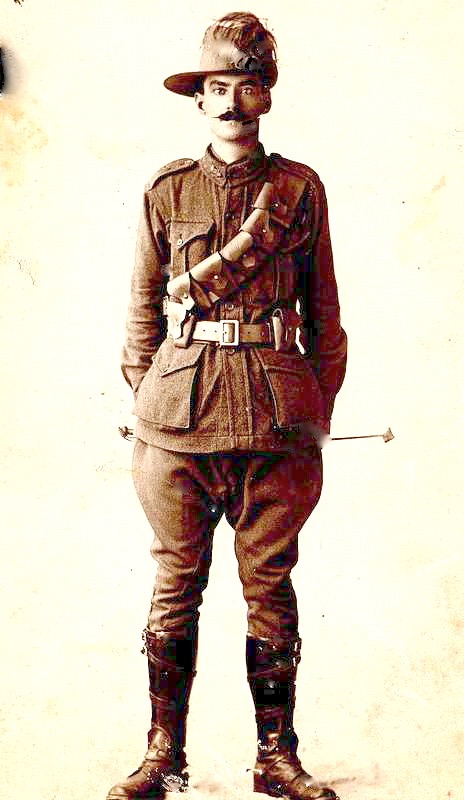
October 3rd 1914
An Object Lesson at Tenindewa
(To the Editor)
Sir, – I your issue of the 29th [previous article] your Tenindewa Correspondent stated, “That not one bag of wheat will be produced east of Northern Gully “.
That statement is absolutely untrue, for we have at Tenindewa on Messes. Dunkin and Valentines property we have as fine a crop of wheat as one would wish to see anywhere. The area of the field is I think 110 acres [44 hectares] 70 acres [30 hectares] of which carry a crop of Fairbank wheat, standing fully 3ft 3 inches high [1 meter] and as level and uniform as it could possibly be. The ears are filling nicely and are of fair average size, while the flag is broad and of a healthy dark green colour with any amount of sap in the straw. The balance of the field was sown to Bunyip wheat, and though not so tall, is equally as promising as the other portion. I estimate the field would yield if stripped, 14 bushels per acre [1 tonne per hectare] without another drop of rain on it, and if cut for hay would go 15 cwt per acre. The actual rainfall was 333 points [82 mm], while 472 points [117 mm] only have fallen in the last 12 months. Mr. Valentine and Dunkin deserve great credit for having achieved such good results on such light rainfall, as they have clearly demonstrated that by following the correct methods good results can be obtained on three and a quarter inches of rain. [90mm] The field was fallowed with a mouldboard plow in July,1013, and it was lightly cultivated with a spring tooth cultivator in the early part of the summer. Sometime later it was harrowed. Sheep had access to the paddock almost continually, therefore no weeds were allowed to grow. The soil is a fairly stiff red loam and was originally timbered with York gum and jam. The amount of moisture that has been conserved from the previous winter is clearly shown by the row of cork trees that have sprung up on the boundary. These trees have grown from 8 to 12 feet [2.5 to 4 metres] during the last 12 months and on close inspection one notices the huge roots that they have sent out on the one side only, extending far into the fallowed ground in search of moisture. The are several other paddocks on the holding under wheat, oats, barley, each carrying its own lesson to the careful observer, and many profitable points can be picked up by a visit to this farm at this time of year. The visitor will always receive a hearty welcome from the owners, who delight in showing one whatever is to be seen and in giving the fullest details of their methods. There are a few other farms in this locality that will yield from 3 to 5 cwt cwt [hundredweight] per acre of hay, but I think have written enough to show that at least a few bags of wheat will be grown east of Northern Gully.
Yours etc.
Norman Fry, 1/10/1914
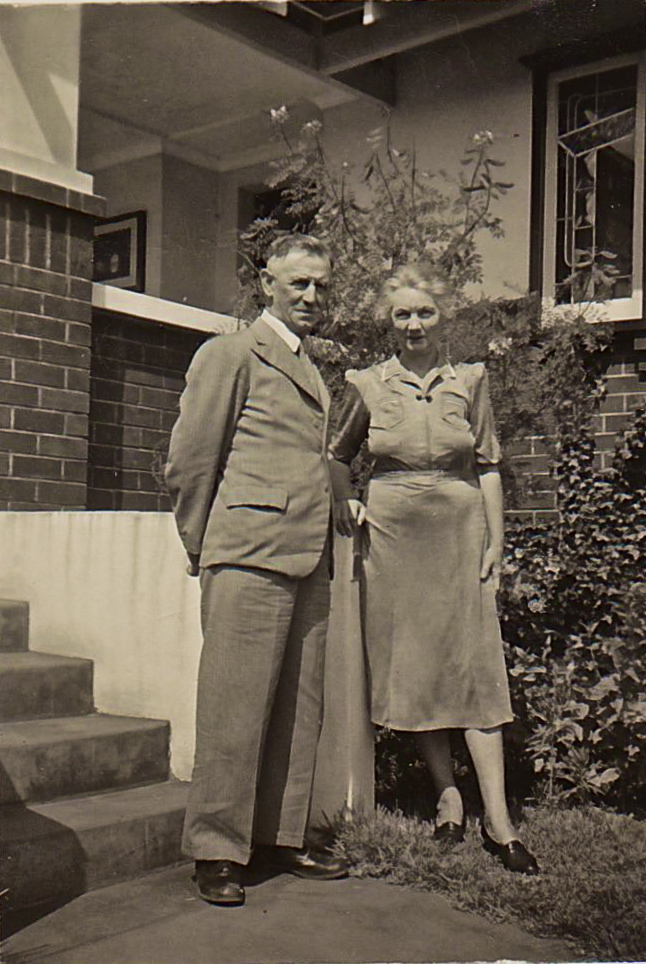
October 29th 1914
Tenindewa Notes (From our own Correspondent)
We have had a few showers lately but not enough to supply the pools or dams with any water. Settlers are (almost all of them) water carrying now, and this is a pleasure to look forward to until May, unless we are fortunate in [getting] a good thunderstorm during the summer.
A few farmers are trying to take a bit of wheat off, and others a bit of hay, but it is a most trying occupation. I am still of the opinion no wheat will go from this district. I believe Messes Valentine and Dunkin have a nice crop of Fairbank, but how it will pan out is hard to say. Anyhow they will have plenty of seed and a bit to spare. I do not know anyone else who will have enough seed? Still if they get a few bags towards it [seed-wheat] it will be something.
Some farmers have this month received notice from Geraldton storekeepers that their credit is stopped, and to reduce accounts. This seems a very strange proceeding in the face of Government promising to guarantee their accounts. Surely, they were in a better position with the Government guarantee than without it? This will drive trade to other markets, and farmers must combine and obtain their stores in a lump and then distribute. They could buy wholesale and distribution would be nothing. The poor farmer is up against a hard lot so are the storekeepers and businessmen generally, what with the war and the bad season.
It’s time the Government told the farmer straight out what they are going to do. Then they will know what to do. Its certain they will not stay on their holdings without tucker etc.
The ground is very hard and the ploughing a difficult matter. A good fall of rain would soften it and be of great value and I’m sure the horses would appreciate it.
Mr. Stafford has struck good sheep water on his run and has sunk a well. and erected a windless and is going in for a few sheep.

January 5th 1915
Tenindewa Notes (From our own Correspondent)
Since the heavy rain of November, a good deal of ploughing has been done. This should be almost equal to a fallow [ie fallow done in the August of 1914 which was not possible due to wipe out drought] for the next crop. The rains freshened up all the feed and made nice growth in grass and salt bush, and they look really splendid. A number of unemployed have been passing along and asking for work of any kind. It is a shame to this country to see men idle, when they could have been put on good and productive work. Take one case only. There are thousands of acres of good mallee and scrub land here which could be cut down at 10 shillings per acre [$1.00 per .4 of a hectare] and when cleaned up for ploughing is worth 20 shillings per acre at least [$2.00 per .4 of a hectare]
If the Government were to allow these men to take so many acres each and pay them the 10 shillings per acre, the work to be done to the satisfaction of the former, or a farmer appointed in each district, and a farmer to arrange the burning off and the clearing up, this would give the Government 20 shillings worth of security for the 10 shillings [outlaid by them]
The 10 shillings could be charged with interest to the farmer over a period to be arranged. All the Government would need to do would be to find the 10 shillings per acre and pay on the farmer’s certificate [account]. This would enable a larger quantity of wheat to be put in, [and] even in this year, and bring about better farming later on and earlier than the present conditions [arrangements] by allowing [a] fallow.
The Roads Board woke up the other day, after months of waiting and they put the pump in working order at Wollya dam and the wells also. Still, I notice cows in the dam enclosure, and this is the water we drink!
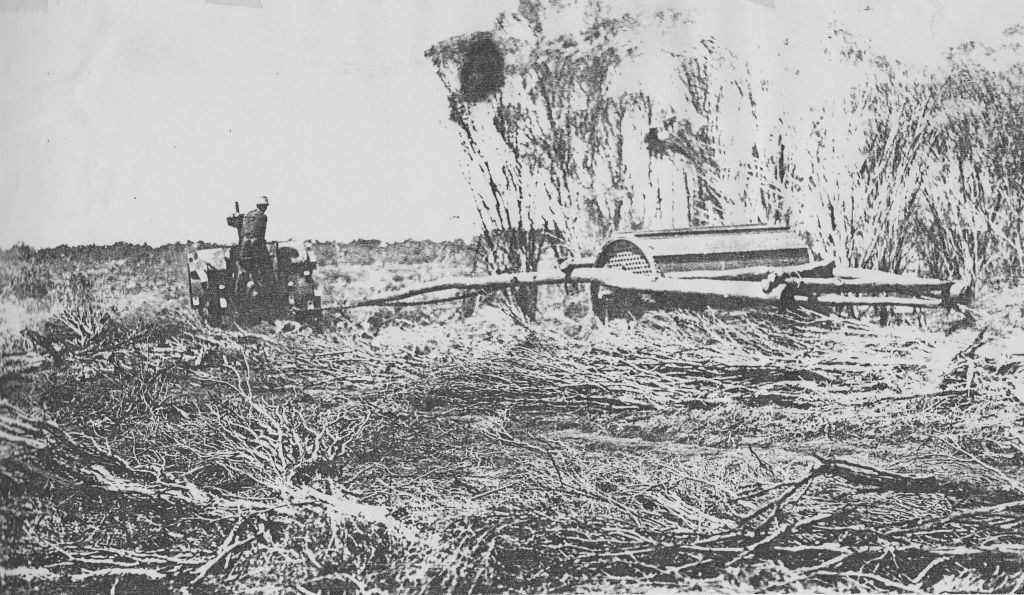
February 25th 1915
Tenindewa Notes (From our own Correspondent)
During the summer we have had splendid rains in this district and the ground is in very fine condition to produce a big harvest next year. The writer tips a big season for the following reasons—The drought has completely broken on the Murchison, and we have shared the thunderstorms to the extent of some inches. [millimeters] On the coast it has been normal as it is not usual to get summer rains there and during [the] growing period we get our rains from the coast. So, things appear to be working for a good season, and I think an early one. The Kockatea Gully here is full of lovely pools and has been so for months past. No one would think this a dry area. Farmers have had practically no water carting and the ground being in such good condition for working they are well ahead with their ploughing, but the matter now rests with the Farmers Assistance Board [I.A.B] to get farmers along their wheat planting preparations promptly so that advantage can be taken of the favorable conditions.
If we get good crops, then the fun will begin. As far as I can make out the Board will have first cut at proceeds of the crop by taking all overdue rents and Agricultural Bank money, then they take half a year’s current rent, etc. after that the cocky gets 25 percent of what is left? What will the cocky [actually] get? The Government insists on labourers getting a living wage. Why should that not apply to the cocky too?
There has been no wheat sent from here [Tenindewa] during the past season and farmers, almost to a man have to buy seed.
Why is meat so dear in Geraldton when such poor prices are paid to by the buyers for sheep and pigs? Fancy a butcher refusing 25 shillings [$2.50] for a 60 lb. dressed pig and he sells it at 10 pence per lb.?
The farmer is not allowed by law to kill and dress spare stock unless he pays 5 pounds [$10.00] for a license and other costs.

March 2nd 1915
Tenindewa Notes (From our own Correspondent)
[Leo reports on himself (and his brother Tom) in this article for the one and only time.
In the story written by Kathleen Palmer “Memories of a Migrant” (page 30) this story gets a more detailed airing.]
A real live hurricane visited Tenindewa on Thursday night last. (25th February 1915)
Things began to get very lively about 9.00 PM and up to 11,00 PM we had just as full and exciting time as anyone would wish and some very close calls to a funeral occurred. However, they say all’s well that ends well and this is so far as life is concerned. The wind must have reached 80 miles an hour [130 kilometer per hour] and every building I know of must have suffered.
To commence with, Mr. Fry’s new residence suffered by the loss of a few sheets of iron and his late residence, a fairly large iron building was blown to the ground.
Mr. Sid Green, the railway ganger [“ganger” denotes the man in charge of the railway gang] suffered too. A large York gum fell right across his house, on the portion that the Post Office is kept in, crushing it flat to the ground. They were all in an adjoining room and they lost no time in vacating it and passed up the rest of the night in the railway Goods Shed. The telephone room at the same place is now standing wrong end up.
Mr. Stokes had to strain all his muscles to hang onto his house all night.
Mr. Tom Shaw had a very trying time too and had just managed to get his wife, who had just fainted, from the house when it turned over. (see note at bottom of page)
Messrs. Palmer and Johnson suffered by the loss of [roofing] iron etc. Fortunately Mr. Palmer had plenty of assistance so they managed to hold their roof together. Mr. Johnson and his family had to pass the night under his dray and it rained inches [an inch is 25mm] during that time, but all the outhouses were destroyed.
Brenkley Bros. house turned partly over and is uninhabitable.
Mr. Stafford lost all of his outhouses and found some of his iron; some he thinks is down Mingenew way and he is not looking for it. A few sheets of iron came off his residence also. All the settlers suffered to a considerable extent, but a few I have not heard from. The creek is running a banker and the ground is soft.
Hundreds of York gum trees and other have blown down and in some places, acres of trees have been levelled to the ground. It is an ill wind that blows nobody any good and in this case I have heard of a man just closing for 100 acres [40 hectare] clearing contract and 1/2 his stuff has been blown over. Anyhow we are not anxious for another blow. It is the worst I have ever seen.
………………………………………………………………………………………
Guardian Note; The storm caused extensive damage to many towns around Geraldton and beyond. Similar stories were received by the Geraldton Guardian from Northampton, Carnarvon, Cue and Mingenew, as well as smaller centres such as Nabewa, Yuna and Tenindewa.
……………………………………………………………………………………………….
2015 Note; Mullewa, according to BOM records received 70 mm of rain from the 24th to the 26th of February and 100 mm for the month; Geraldton very similar: Northampton 100 mm for those three days and 140 mm for the month at places as far away as Cue with 50 mm for the same period. One could imagine rivers such as the Greenough would have run some huge amount of water on that occasion.
Incidentally, in roughly the same calendar space in 2000 cyclone Steve dumped similar amounts of rain in the area and earlier in the N.T, and Qld. It was the wettest system ever recorded to affect Australia. (The Tenindewa/Bindu gauge received 100 mm from Steve}
……………………………………………………………………………………………………..
Guardian Note; Elisabeth (Kember) Shaw was seven months pregnant with her 3rd child Thomas when it happened, so no wonder she fainted. Elisabeth’s young sister, Chris aged 14, was staying with the family at the time and probably Elisabeth through the pregnancy.

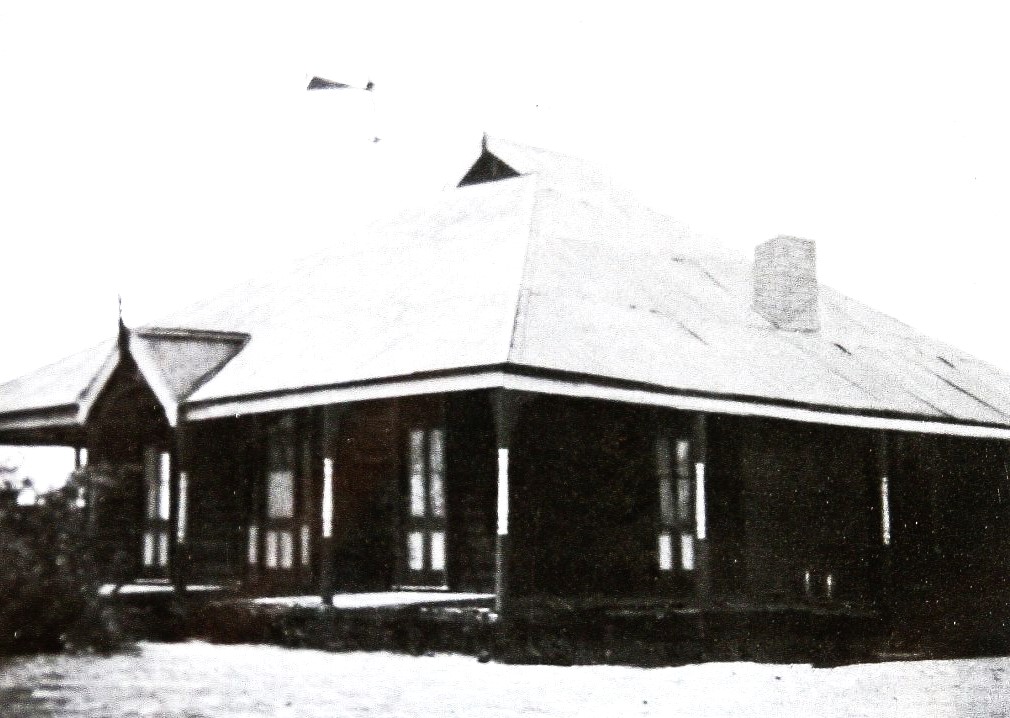
June 12 1915
Tenindewa Notes (From our own Correspondent)
Well, a farmer’s lot is not a happy one, what with the bad seasons, pressing creditors, and getting this year’s crop in. Still, it might be a lot worse so we should smile.
The Farmers Assistance Board came in for a lot of abuse of various kinds, and perhaps they deserved some of it. Still, it was a mighty big undertaking to have to fix up probably 80% of the farmers with seed, manure, horse feed, living, etc…and taking everything into consideration, they have not done so badly. I think the lucky farmers, who had spare wheat, could have helped the unlucky ones a bit more by coming forward with their spare stuff more promptly.
I think there will be some fun when harvest comes off, because a great deal of the seed supplied is un-named, and a lot ungraded, so I anticipate the greatest mixed crops this season that ever have been seen in W.A. and dirty fields, consisting of wild radish, oats etc. Stripping will be hard with the stuff of various heights.
Most of the farmers in this district have finished seeding, and some nice crops are above the ground, some being nine inches high. A larger area is in this season around here, but unfortunately almost all of it is late variety seed.
Lovely rains are falling at nice intervals. The ground is well soaked and there is plenty of feed coming along.
The Methodists have started to hold services here monthly, and it is well supported. We want a public hall here for the benefit of settlers in General

August 10th 1915
Tenindewa Notes (From our own Correspondent)
Rain, rain rain, almost every day for over two months, and still no appearance of casing. I suppose it is right to growl, last year not enough, this year too much. We could well do with a few of weeks of dry weather, as most of the crops are showing the effects of too much rain. Still, they are remarkably good looking, and some very forward and fine crops are about. Mr. Fry has some nice Fairbank, and a small paddock of Mr. Fry’s, near the siding, looks well. There is a very large area in this season. I will quote you the figures which are only approximately correct:
Mr. Keeffe 700 acres, Mr. Hunter 700 acres, Mr. Couper 500 acres, Mr. Fry 600 acres, Mr. Stokes 300 acres, Mr. Loughan 100, Mr. Rumble 250, Mr. Meadowcroft 300, Mr. Oldam 300, Mr. Critch 130, Mr. McGuinness 300, Mr. Troy 150, Mr, Gruen 300, Mr. Malone 200, Mr. Stafford 325, L. Stafford 30, Messes Valentine and Dunkin 600, Messes Palmer and Mullivan 100, Mr. Cromlin 130, Mr. Johnson 150, Mr. Curtis 200, Brinkley brothers 300, Mr. Cirboy 200, Messes Brooks, Clarke, Jose and Brand out on the Greenough river all have good crops in, and looking well. All of the above cart to Tenindewa and Indarra, the total area under wheat being about 7000 acres, which is the highest of any season yet. Some very fair vegetable gardens are also doing well, and a few are trying maize in a small way, but I’m afraid it has been put in too early.
Australia Day was celebrated at Mullewa, to which place a fair a fair number of Tenindewa people, and almost all of the settlers contributed something in cash or kind so that Mullewa will send a nice little cheque in.
Around here at present is a perfect flower garden, and the beauty of the blending colours is something worth seeing. You may talk about the Murchison and other places but, for a pretty spot and feed galore give me the Kockatea Gully.
All the stock in this district are fat and frisky, and water is everywhere and if a person gets off the road, he promptly gets bogged. Carting in the bush lands is now impossible.
The war causes a lot of talking and though here, and the shortness of news coming along, is very trying. We get mail from Geraldton from Friday till Monday. A recruiting officer should get a few good able -bodied men around here and Mullewa. If I were only a young man, this country could not hold me. It’s worth the risk of being killed to have the trip and look at the sport of getting fit, a really live physical training. We may as well die as become Germans and to say, fight to the last man, and Australia will be there at the finish I couldn’t think much of the young men who can go but won’t. Of course, many in the farming industry cannot go, but some can and won’t. That is where compulsory service is good. If Germany wins Australia will get a bad time, so I hope it will be to a finish
A good many bachelor farmers are talking of matrimony after this crop come off. What a lot is to be from this crop.
August 20th 1915
Tenindewa Notes (From our own Correspondent)
The beautiful sunshiny days we are now having after the continuous wet weather will gladden the hearts of farmers. Ever since the beginning of the year the weather has all that could be desired. The rainfall since the growing season commenced is as follows;- May 225 points [56mm] June 355 pts [88 mm] July 313 pts [78mm] August 128 pts [32mm] to date. The rainfall for the year to date is 16 inches [400 mm]. We have had no frosts so far this winter…and vegetation of every description has made marvelous growth. The wildflowers are very numerous and beautiful. The individual blooms beat anything I have seen foe size and excellence, and I think we have a greater variety than I have ever noticed previously. Of stock feed we have an abundance. The crops are making great headway. many of them are already higher than the fences. Mr J J Keeffe has commenced hay cutting and Messes Hunter, Fry, Valentine and Dunkin will shortly follow his example. I notice the wild radish has made its appearance in several fields. The owners should lose no time and spare no energy in ridding this hitherto clean district of this pest. There are over 7,000 acres under wheat in this district and many big yields expected.
I am sorry that I cannot send along a list of recruits for the army from this locality, but so far not a single individual has volunteered, although we have quite a number of able-bodied young men here who should make excellent soldiers. Perhaps after all they can best serve their country by following the plough and doing their bit by growing wheat with which to feed the Empire.
Mr. F. Fuller has just completed a comfortable three-bedroom house on his selection here, and the conclusion one naturally draws is that he is contemplating passing through the third era of life.
We wish him peace and prosperity.
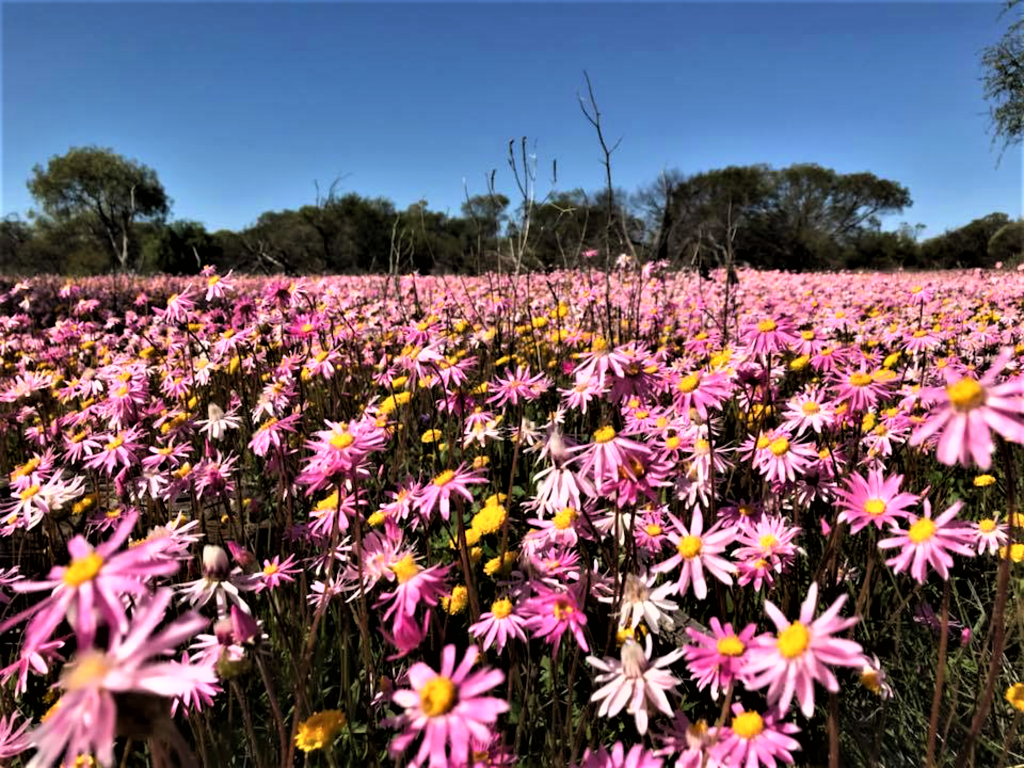
August 27th 1915
Local and General (Geraldton Express)
Our harvest prospects–Judging by a sample of this season’s wheat yield (now on show at this office) which came to hand a day or two ago from the farm of Mr. L. J. Critch, of Tenindewa, there is every reason to predict that this particular part of the wheat growing area of the Victoria district will reap the full benefit of the magnificent rainfall experienced this season. The sample in question is sell stooled, and about 4ft 6ins [1.4 metres] in height, carrying plump heads of about 5inchs [125 mm] long, and was grown from seed crossbred 73. Most of the crops in and around Tenindewa, we are given to understand, give promise of a record yield. At the Geraldton Agricultural Show for 1913, first and second prizes for the best two sheaves were obtained from Mr. L. J. Critch and Mr. N. Fry respectively, from samples grown at Tenindewa.
August 28th 1915
Tenindewa Notes (From our own Correspondent)
Owing to the abnormal conditions since November last in having rain every few weeks, the growth of the suckers and seedlings has been very great and has caused a good deal of labour and expense to farmers. In some cases, it has been nearly as bad as having to clear the areas all over again.
Bindu Dam is making fair progress under the management of Mr. Stokes. This dam will be a great help to farmers along the Kockatea Gully, but it is a pity that it was not started months earlier, so that it could have filled for summer use. I’m afraid it will be finished too late for the rains. This will mean days of man and beast wasted carting water long distances, instead of doing develop work on farms and thus increasing the security of the Agricultural Bank.
What is the use of the Wheat Commissioner to the farmers of this district, what good do we receive from his experience and knowledge? I only know of his having been around here once. If he cannot visit us, surely, he has some way of letting the way back farmers know what is doing in his line, what is being done at the State Farms, what new crops to try and such matters. Could he not distribute amongst farmers around here some new kind of wheat or other grain for trial? Could he not have a column in some weekly paper for the benefit of farmers in general instead of him being used in the favorable districts. We are entitled to something. Our member might take a hint.
Noxious weeds are very much in evidence on the public roads and farms. What is wrong with the Road Board that they do not take action. I suppose it is this “wait a while policy” so much in evidence? Farmers would clear their farms if the Road Board cleared their roads.
Federation wheat, which has been cracked up so much, has been tried around this part for a year, but so far as I can see it is not the wheat for this district. It is a wheat with a poor constitution and will not stand wet or dry weather. If we get a lot of rain, it shows mildew promptly and does not grow, and is the first to put up the distress signal if a dry period comes along.
Farmers are busy fallowing. They have been delayed in starting owing to too much rain. In consequence I do not think there will be a very large area of good fallow for next season’s sowings.
The police are around taking crop expectations. I do not think the average will be a very large one, as many of the late crops are very backward, and are the wrong kinds of wheat, vis, late wheats sown late.
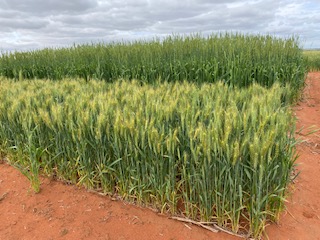
Modern wheat in the foreground Tenindewa (August 2022)
September 7th 1915
Tenindewa Notes (From our own Correspondent)
The weather is finer, and things are growing well. A few farmers are already cutting hay, and they anticipate a two ton [per acre] yield. It is a record early time for hay in this district [and] Messrs. Keeffe, Hunter and Fry are cutting. The wheat that has done the best for hay is Fairbank. It is a very vigorous and quick grower, and is a half-sister to that good yielder Bunyip
I wonder why the wheat supplied from Geraldton to farmers was not graded. I note Commissioner Sutton lays great stress on graded seed. That supplied from Northam was graded. I suppose anything was good enough for the Victoria District cocky, and there was plenty of wild radish, mustard, etc. in the wheat supplied. One farmer cleaned 5 bags of rubbish out of 40 bags supplies and the funny thing is the graded wheat was supplied to the newest settlers, and [at] that, very late.
The result will be very poor crops, because their land was not fallowed and, in some cases, [fallowed] fairly rough.
Ice plant and Perkels, two creeping weeds, took possession in a good many crops in the late sown wheat and [it] creeps all over the ground and forms a quite a dense and thick patch. The early sown and early wheat appear to do better in a very wet season than the later varieties, even when the late varieties are sown early. That is my impression from the observations around here. I am satisfied also that around here there is no place in ordinary seasons for late varieties like Yandilla King and Dart’s Imperial and so on. They take too long to grow. Yandilla King put in [this] last April is not out in ear yet!
Mixed farming is what is wanted here, and a few sheep, pigs and cows, enough to supply the family with butter, cheese, milk, etc. and not forgetting a few cacklers. I know on farmer who has 33 suckers from 3 sows, and nice pigs too. They will weigh over 30 lbs. each [14 kgs] dressed at two months –990 lbs. [41 kgs] at sixpence per pound [weight]—24 pounds 15 shillings [currency] —better than wheat.
October 7th 1915
Tenindewa Notes (From our own Correspondent)
A number of farmers have finished hay-cutting, the yields being very satisfactory, and far greater than any other known around this district. Some have realized fine prices in Perth for new season’s chaff, particularly Messrs. O Keeffe and Hunter.
Wheat crops are very promising and almost free from disease. Occasionally a little rust is met with under the flag, but not enough to affect the yield. I think the average over here will be at least 20 bushels per acre. Better crops it would be hard to find anywhere. They are in most cases well grown, healthy and thick
Warm weather is fast approaching, the temperature for the last few days being between 80 and 90 degrees [27 and 35 degrees Celsius], and feed is so plentiful, unless settlers are very careful some will be burned out. Grass is already getting dry enough to burn.
Some settlers are busy trying to catch rabbits, owing to the Inspector looking around. It is not much use a few settlers trying to trap if they all dont follow suit. What is wrong with the Government trapping on their land adjoining settlers; and the Road Board of their reserves?
A Farmers and Settlers Association has been formed around here, with a first rollcall of thirteen, not a very lucky number, and if it follows in the wake of the old Progress Association it won’t be much good. Bindu Government Dam is nearing completion.
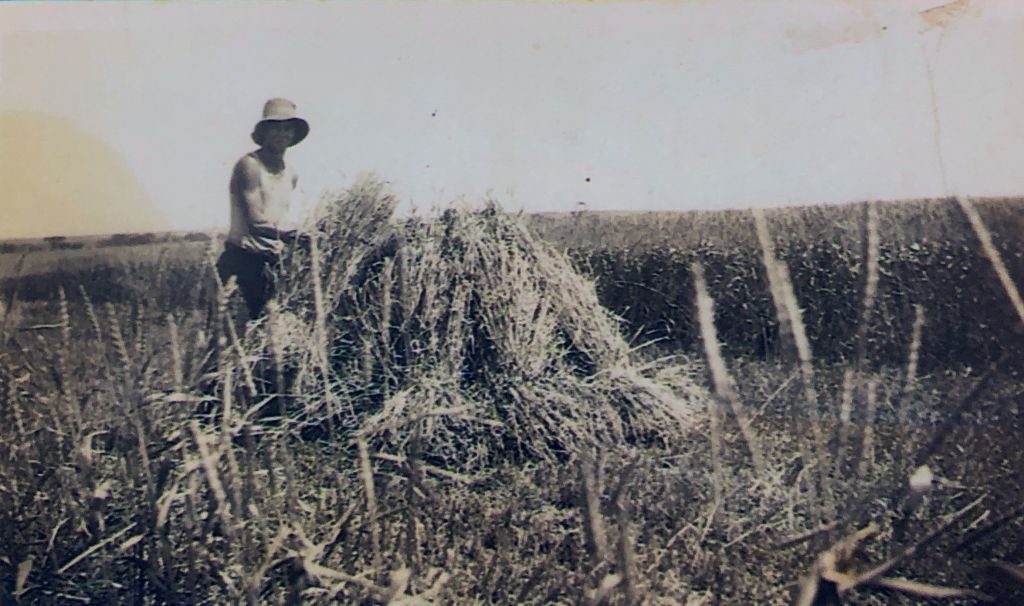
October 10th 1915
Sunday Times
A meeting of farmers held at Tenindewa on the 26th instant decided to form a branch of the farmers and settlers Association, to be known as the Tenindewa, Bindu and Wandana Branch.
Mr. E C Clarke was president, Mr. W. Brenkley vice president; committee Messrs. Brand, Griffiths, and Valentine; treasurer Mr. L Critch and secretary, Mr. W H Stokes. Thirteen members were enrolled at the meeting, each member undertaking to enroll 3 new members. Therefore a largely increased membership is confidently expected at no distant date. It was decided to hold the next meeting at Bindu, the following at Valentine’s Tank, and to complete the round by holding the next at Tenindewa. A discussion was introduced re. loyalty of members to their association, and it was decided that members would put as much of their business as possible with the Westralian Farmers Ltd. [to] which [that] trading concern had been started by the Farmers and Settlers Association. The action of a prominent member of the association acting in the capacity of insurance agent for a rival firm was well, not too favorably commented upon–W. H. Stokes, hon sec, T.B and W. Branch, F and S.A. [sic]
October 21st 1915
Tenindewa Notes (From our own Correspondent)
I predict a far smaller wheat yield this coming season than what was anticipated, as rust is very prevalent, and some crops are bad since the last rains. Hay cutting is about finished, and some is already stacked. Strong and bitter complaints are being made owing to the Railway Departments neglect to move trucks of chaff promptly from this siding. Some have taken 10 days from the loading to arrival in Perth, with the result that the sender lost pounds per ton through the delay. As the Government wants the farmers to try to make good this year, it is up to them to hold an enquiry into these delays. Then again, trucks often arrive to load chaff but with no ropes or sheets. If the Railway Department cannot handle the goods now things are slack, what will they do when wheat is coming in. Mr. Short said there would be no trouble in handling the harvest. Still, here we are at the beginning, and complaints are very bitter.
A farmer here asked the Industries Assistance Board if they would pay his man his wage so he could enlist, but the Board would not. I thought that wages were the first charge against the crop, and that men were wanted for the front.
A Bindu farmer was relating his dream to the writer the other day. He said” I have had a dream about this war, and I saw an aero-plane charging a Zeppelin airship so as to destroy it, and just before the impact the man in the aero-plane dropped from his aero-plane in a parachute (like they used to do from ballooning) and landed safely on terra-firma. I just relate this as it may be useful to try.
A number of young fellows around here are anxiously waiting to finish harvest so they can get away to the war. I noticed in Mullewa a few days ago at a pub a large number of strong young men who should be at the front. Where is the recruiting sergeant? (The recruiting sergeant has been recalled to Perth: -Ed)
Since the visit of the Rabbit Inspector, rabbit pie is a common dish with the farer and his family.
School attendances have gone down considerably owing to the Railway Department removing married fettlers who has families and replacing them with others who have not.
This is not giving farmers a fair show, and the Education Department has called on those sending children to school to help pay the teacher’s salary. So, the education will cost the farmers about 5 shillings per child per month as, owing to the shortage of two scholars, the grade of the school has to reduced.
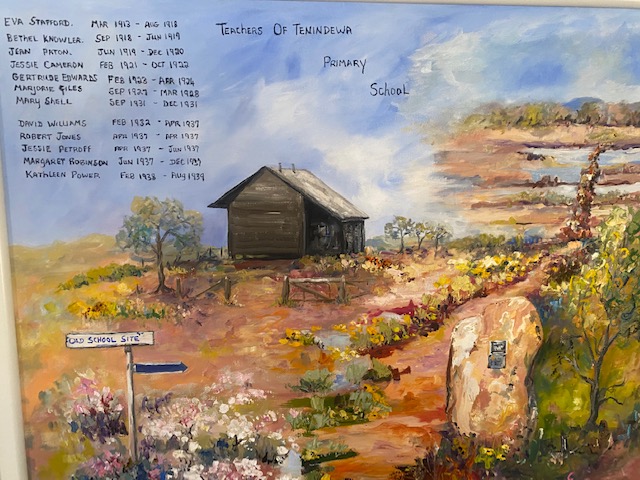
________________________________________________
The Anglican Picnic, –Early yesterday morning it appeared as if the picnic, organized by the Anglican Church, would be spoiled by the weather, but fortunately it cleared up, and a big train load of adults and juveniles journeyed out to Mt. Erin. The day continued fine but blustery, and that outing was thoroughly enjoyed.
November 20th 1915
Tenindewa Notes (From our own Correspondent)
Three young fellows from these parts left for Geraldton yesterday to enlist for the front, Claude Wilword, Bert Jones, and Lew Stafford, and there are a few more men who should go, as the Empire’s need should come first.
The State school is at a low ebb as far as scholars are concerned, owing to the Railway Department removing married fettlers with children and sending other who have none, and this is being repeatedly done for some cause or other. It must cost money, this continually transferring men. Why the need for it [in] these hard times, and the Government so hard up? The matter is worth looking into
How the State helped the farmer to put his crop in the [1915] the following will show. It is for cropping 300 acres wheat and [for] fallow[ing] 300 acres.
The reader must surmise that “a relief package” was put together on the back of the 1914 Australia wide drought and in the face of the looming World War? See June 12th, 1915, article.
One ton of maize ……………………………………………10 pounds 11 shillings 8 pence
Freight………………………………………………………………….2 pounds 3 shillings 11 pence
Super………………(six tons 10 cwts)…………………..28 pounds 6 shillings 4 pence
Freight ………………………………………………………………..4 pounds 11 shillings 10 pence
Chaff…..(8 tons 16 cwts 1 quarter)………………..92 pounds 10 shillings 8 pence
Freight…………………………………………………………………8 pounds 4 shillings 3 pence
Wheat..(225bushels@ 7 shillings 11 pence)..89 pounds 12 shillings 3 pence (Dirty and ungraded)
Freight………………………………………………………………….2 pounds 7 shillings
Total……………………………………………………………238 pounds 12 shillings 8 pence
Now add to this amount
Ploughing @ 4 shillings/acre X 300 acres…….60 pounds
Drilling @ 2 shillings…………………………………………30 pounds
Stripping @ 8 shillings…………………………………….120 pounds
Bags …………………………………………….. inc. freight….41 pounds 17 shillings (@9 shillings and 9 pence per dozen)
Total…………………………………………………………….251 pounds 17 shillings
Grand Total…………………………………………………490 pounds 9 shillings 8 pence
Note; The author had calculated this to be ..450 pounds. But regardless the numbers do the talking?
There are other expenses including land rent, interest, wear and tear, man and beast, etc.
Now where does the farmer come in?
Taking 25 acres for hay for next crop which
Leaves 275 acres of crop @ 12 bushels per acre yield gives 3,300 bushels
Minus 300 bushels for seed for next year……………………..gives 3,000 bushels
Which @ 3 bushels per bag……………………………………………. gives 1000 bags @ 9 shillings per bag handed out by the Government……………………………………………………..gives 450 pounds
A farmer could have made more money with less work in half a dozen old sows and be less in debt.
People say, “Young men go on the land” I say “Don’t be a mug” stay in town where there is less work and more fun. The above account is called Government assistance. The assistance was perhaps, well-meant but was a big mistake as far as the farmers are concerned. They will come out of this harvest in a worse position than the last, and as the Government has first cut from the proceeds, how are the businesspeople going to get theirs too? Then the farmer has to live, and put his next crop in. How is it to be alone? Perhaps the Hon. Minister for Land can say. One thing I know, this Act, which gave the assistance must be altered, otherwise, many farmers will go off the land. The last accounts from the Industries Assistance Board only arrived today, so farmers had no idea what putting the crop in would cost. Have the farmers had to pay the big loss on fodder? If so, it is not a fair charge against them, as I know carriers in Geraldton who wanted to buy at good prices but could not. I know farmers who have had to buy a lot of machinery, and horses and have had to pay heavy living expenses, and then cart their wheat for from 6 to 12 miles to the railways. How are these men going to balance up? The Federal Government are taking all the wheat and advancing 3 shillings per bushel. Will he farmer ever get any more than the 3 shillings per bushel? If it is run like their other trading concerns, the farmer will have no show. Why the Government wanted to interfere with the selling, I do not know, it is another move to keep the farmers in as to his position still longer, and to have his money to use until November 1916. To say the least, the whole thing is rotten; and unless some strong man is found, who can grasp the situation and has the courage to deal straightly with it, the farmers are in for a really bad time and as they say they are the backbone of the country, all other businesses must suffer. It’s not good to write with this strain, but why shirk the facts.
November 22nd 1915
Tenindewa Notes (From our Correspondent)
Note; Leo Critch cracks mention here but interestingly the “alternative” correspondent has the pen.
Harvesting operations are in full swing on all sides, and one hears some fine yields here and there. Mr. Leo Critch had a field of Toby’s Luck yield him 25 bushels per acre (1.85 tonne per hectare). Mr. Oldham’s Federation is going 24 bushels per acre. Some of the fields have suffered from rust, although I have not heard of one yielding under 10 bushels. The most of the crop was well advanced when the rust made it’s appearance, and many of us thought the yields would not be affected by it. The heads appear to be well filled and the grain fairly plump, but when it dried we found that the heads contained a percentage of shriveled grain, and this in most cases yielded from 2 to 6 bushels per acre (75 to 200 kgs per hectare) In other places the rust appeared to have weakened the straw as well, and a fair amount has been lost by the straw breaking off at the highest joint and letting the heads down on the ground. Septoria has made its appearance in a few patches, but these were promptly turned into hay, so the loss from that source will be very light. Quite a lot of new harvesting machinery has been introduced this year. I notice 5 reaper/threshers and State Harvesters galore. Several trucks [rail wagons] of wheat have already left the district. A few have been sent to the Perth market via. Wongan Hills. This [wheat] fetched 5 shillings and 7 pence per bushel, and after deducting freight and other charges, the owners received a fraction under 4 shillings and 11 pence per bushel net. One hears rumors of wheat buyers travelling through the Eastern Districts (i.e. is along the Eastern and Great Southern railways) offering the farmers 5 shillings and 3 pence to 5 shillings and six pence per bushel for their wheat, but so far, I know not a solitary buyer has yet to come this way. Many of us are in quandary as to what to do with the wheat now that we have got it. We are waiting anxiously to see if the King’s head is still on the half-crown. Why is it that the wheat buyers are neglecting us? Is it that the Commonwealth scheme of handling the surplus has scared the wheat shark out of the business? If so, let’s hope the Victoria District will not be overlooked by those controlling the scheme. I understand there is a limited amount of space allotted to W.A. for December/January shipments. Well, who is going to look out that the Victoria District gets its share of that space? This district is perhaps the earlies in the State, and as 9/10s of our wheat will be available for shipping by the end of the year, we should be allotted the lion’s share of the space that has been allowed to W.A. for the December/January shipments. Whose business is it to see that we get it?
Our first batch of recruits left here on Tuesday last. Mr. L. Stafford, Mr. C. Millward and another [Bert Jones] have set an example to the slackers of this district and offered their services to their King and Country. I understand that two or three others are seriously “thinking about it” after the crop comes off.
Note; This last paragraph has a very sad sequel. See the second last paragraph on page 40 of Memories of a Migrant
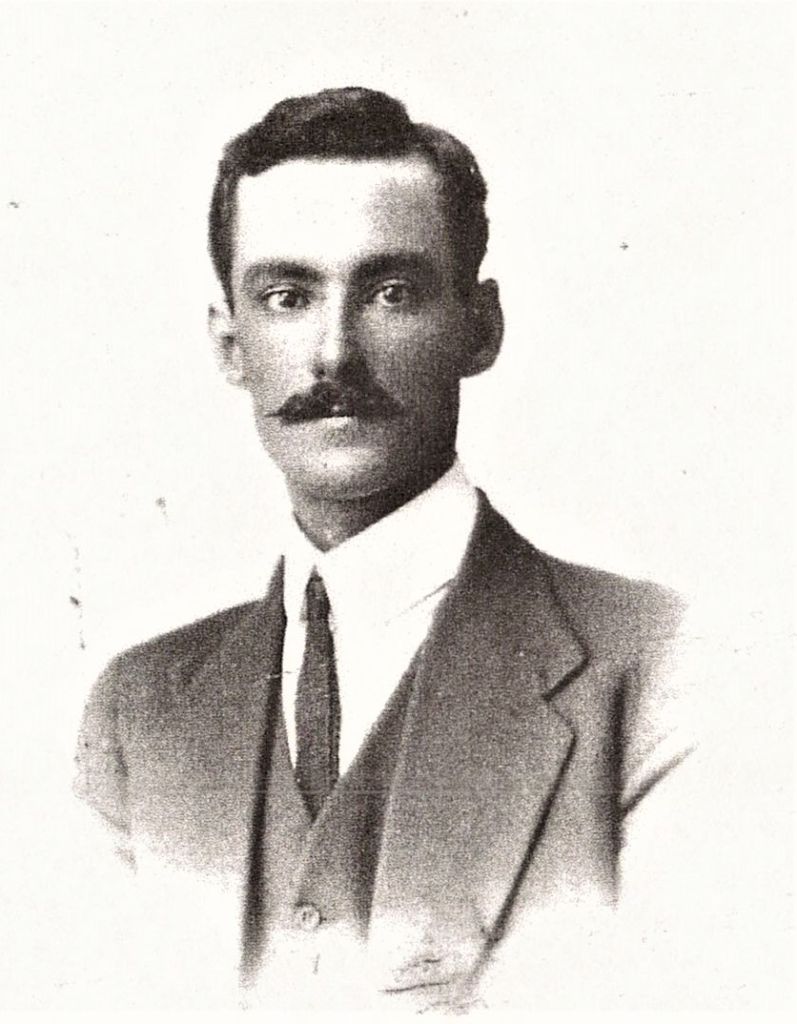
December 14th 1915
Tenindewa Notes (From our own Correspondent)
Farmers would like to know what they have to do with their wheat, as thousands of bags are lying out in the fields waiting for someone to whom to deliver. While this delay is going on farmers are paying interest on advances, which is no doubt helping them downward. [financially]
I think the Labour Party should have a change to the Opposition for a while. They have not covered themselves with glory in dealing with the country or the farmers. They have certainly had the most exceptional period in the history of the country, but giving all that in, they could easily have done better. If they would trust their trained civil servants more, I think there would be less bugling. It is high time that the retrenching knife was applied to the civil service generally and not leave the matter at putting off a few land inspectors. Although most people think civil servants are good for nothing after leaving their government jobs, it is a mistaken idea, and it would do a lot of them real good to be fired out and have to shift [fend] for themselves, instead of receiving every fortnight or month the consolation of a few pounds. But the Labour Government will never tackle retrenchment.
If the recruiting sergeant comes around here soon, he will find that some fine lumps of men here have finished harvesting.
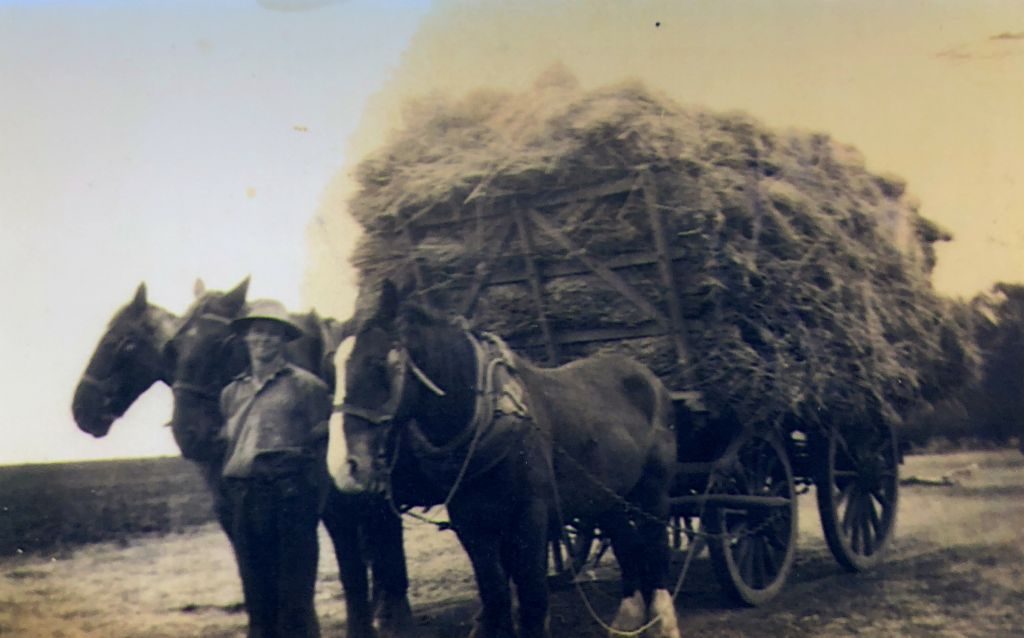
December 15th 1915
To The Editor (Tenindewa and Enlistment)
[No doubt this is a response to the August 20th, November 22nd and December 14th, Tenindewa Notes immediately preceding]
The letter is signed W.H.S and would be very likely be Mr. Harry Stokes. A long residing and respected member of the Tenindewa Area.
Sir,–Being a resident of Tenindewa I wish to take exception to the misleading comments appearing in your paper from Tenindewa correspondents, who seem unusually fond of criticizing those settlers, who in their opinion should be at the front. I think your correspondents realize the urgent need for men in the firing line, and I would like to know if they have ever thought of enlisting themselves, setting an example and thereby doing more good, than columns of insults, which if taken seriously would have the effect of checking rather than encouraging recruiting.
Some readers of your paper are no doubt under the impression that this centre is over-run with wasters and slackers, while the latest edition of this clap-trap of un unclaimed letter, insinuating that the place is seething with pro- German-ism. I am wondering if he displayed judgment in not signing his name, or weather he has one. in any case when one takes into consideration that personal and not patriotic motives prompted him to try and blackmail a trusted and respected resident. I dont think anyone is anxious to make his acquaintance. I might state i have resided here a number of years, and i claim to know the views, expressed and otherwise, of every settler, and I say unreservedly there is not a German sympathizer in the place.
No one here wants reminding that the British cause is just, but I for one deplore the fact is championed by such a miserable a specimen of humanity as your correspondent in question. Notice the hypocrite’s bid for sympathy by mentioning his “dear ones in the trenches”. He pretends but I doubt if he refers to his relations; if he does let’s hope they possess some of those good qualities that make the world admire a Britisher, qualities your correspondent sadly lacks. Returning to your ordinary correspondent, does he think good soldiers are composed of that material that would be intimidated to enlist for fear of public criticism? If so, he shows his ignorance by estimating other people’s courage by his own weakness. And again, if he realizes there exists a demand for more good men, then it is his duty to enlist, and that at once. He wouldn’t be missed from here and would be no loss to Australia if he never returned. –
Yours etc.
W.H.S (Tenindewa 9th 1915)
